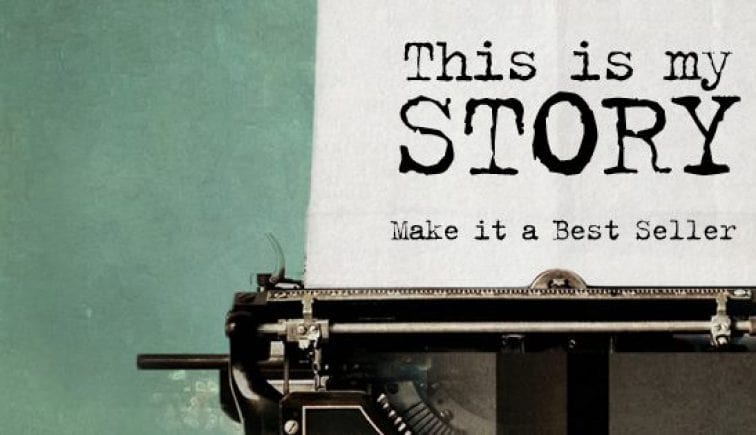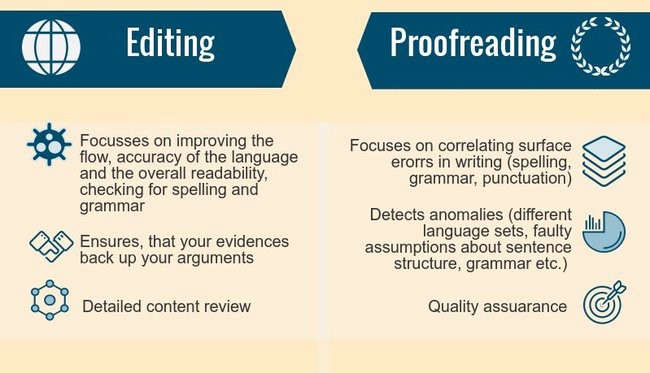Statement of Purpose is one of the hardest thing that you will ever write if you apply to graduate school. Besides, it is the most misapprehended aspects of graduate applications, where most of the students pass it off like another essay about themselves. Therefore, they usually come up with monotonous stuff which does not make them stand out among the applicants. It is an important element of your grad school application package. The university admission committee puts a heavy weight on the statement of purpose. They want to figure out your genuine interest in pursuing your research work and higher studies at their university.
So, how do you start?
Assuming, you are writing the first draft and you have come up with the following opener of your statement of purpose:
“I am applying for the Master of Science program in X Engineering Department at the University of Y because i believe that this program will help me to develop my scientific and technical knowledge”
Or Like This:
“I am extremely excited to apply for the Master of Science program in X Engineering Department at the University of Y because for as long as i can remember, i have had a true passion with science. Since I was a kid in school, I have known I wanted to be a scientist.”
So, you just wrote this, right? Now you are thinking that you will proofread it, insert some GRE words here and there. Do you think that this opening paragraph will command the reader’s attention? Will the reader read the rest of your SOP with an open mind? Do they want this applicant in their program? Will they remember this application later? You be the judge.
If you still do not change your mind to start writing a new opener, then congrats. Your SOP is going to the waste paper basket in the room.
What does the admission committee look for?
The admissions committee knows you are applying to their PhD or masters program in their X/Y/Z university. They know it very well that their well designed program will help you to develop your technical skills and knowledge. And, you wrote some cliche statement which does not make any difference. It’s like that you have been asked “Why you want to work in our company?”. You are answering — “I need a job to earn my living”.

You are not the single applicant!
Perhaps, the member of the admission committee who is reading your statement of purpose, had already been through 100 statements. Unfortunately, your opening statement just failed to make you stand out from the crowd. If you want the admission committee to remember your essay after they have been through hundreds of applications, you need to come up with somewhat special, unique and obviously original.
You need a hook!?

“When i was eleven, my big brother went abroad and left me something that changed my life: a home grown laboratory full of scientific equipment, a desktop computer and thousand of books. Some of my best days were spent cleaning the laboratory, gazing through his books and toying with his instruments. Since then, I have wanted to have my own lab like him.”
This statement tells the admission committee about one’s almost life long passion. The applicant does not want only a lab, rather aspires to be a true scientist. When the committee starts to discuss about the candidates who really stand out; don’t you think that they will remember this statement? Of course they will, because having a home grown lab rather than just watching “Dexter’s Laboratory” on Cartoon Network would probably be a cherished fantasy for each of them.

Write a story, not a Statement
Just think yourself as a story teller. Think how you can engage your readers while they read your statement of purpose. For example, if you are given a choice, would you prefer listening to someone’s travel story or just the travel information. What would you prefer? The travel story, without a doubt? Because it emotionally connects you to the whole journey, places and the time. You imagine yourself in place of the narrator, and live the moments while s/he tells you the story. We remember stories much easier than statements. Because stories connect to us, statements or information’s don’t.
I am not saying that your story will be somewhat exactly similar. I don’t encourage to you to copy the above story for your statement of purpose. You always should come up with our own story. If you don’t find it immediately then ponder about the past. I guarantee you that you will find a unique one from your life.
So, before writing the introductory statement, just ask yourself a simple question. “Do you want your statement of purpose to read like a story book or a newspaper?

Questions to be Answered:
In general, the admission committee seeks the answer to some basic questions from a SOP. They will never ask you openly, but the following questions should be answered while you are writing your SOP.
- Why you want to pursue higher studies?
- Why do you want to study at the particular university?
- Why do you want to work with Professor X or in particular lab of the university?
- How much and what kind of experience you have in your field?
- How does your experiences fit to your choice of field or the lab you want to work in?
- How you can add values to the lab?
- Do you have any specific research ideas that you want to work on? If Yes and then explain it in brief.
- How working with Professor X and getting a M.Sc/PhD degree will help you to achieve your goal?
Overall, why should the university grant you admission with full funding support in the form of Teaching or Research Assistant?
You should consider answering these questions while writing your SOP, but in the form of a story. If your story is interesting enough to them, you will end up with not only an admission, but also a decent scholarship as well.
Why the Statement of Purpose is so important?
Lets, take a break at this point and think of something else. Assume that, you are a hiring manager and you are recruiting some people for the new project. You have advertised openings and mentioned the minimum requirements to be qualified for the submission. 10 candidates submitted the application and they all meet the minimum requirements. Now, you could probably select the top candidate by just going through their academic performance, previous work experiences, skills etc. But you decide to talk with them in the form of an interview? — Because you don’t want the best candidate for your project, you want to find the right candidate.
Same thing happens with your graduate school application process. It is not possible to take interview of each candidates or select the best candidate just by going through the academic CV or transcripts. Therefore, the admission committee wants to find the right candidate through your written stories, known as SOP.
But, Be Specific:
While you write a statement of purpose, be specific and purposeful. Don’t just write something out of the blue to impress the admission committee. Don’t just say that you choose to work with Professor X, because you like his work. Rather, you should explain clearly why you love this field? What made you passionate about that field? Why you really want to work on that specific field for the rest of your life? What type of experiences and skills you have? How your experiences and skills will make you a best fit for the group etc. etc.
Quantify Your Statement:
“After finishing my final year project, i worked as a mentor in my lab, where i helped some undergrad students to finish their project.”
Though it sounds seemingly awesome you have some mentoring experience, but it does not give the full picture. Because the admission committee does not have the idea about the impact that you made. So you might think of writing this way:
“After finishing my undergraduate project, i had a chance to mentor 2 senior year students from my lab for 6 months. I, initially, worked with them to develop their idea for the senior year project and taught them the required programming skills in Python so that they can write code for instrument control for their project.”
The above statement clearly highlights your mentoring experience e.g. how many students you have taught and for how long? What did you teach them and how did you help them to achieve their goals.
Can you see the difference between those two statements? The numbers and the specific details of your experience give a whole new perspective to the readers. Thus, their attention for you is suddenly multiplied. If you can quantify your experiences and skills properly, the admission committee will surely rank you the top among the applicants and will seriously consider you for admission with financial aid.
Customize Your Essay:
Most of the applicants develop a tendency to write statement of purpose as a template, rather coining their statement for each individual school. They simple change the university name and the name of the professor they want to work with, and nothing else. Even though your goal is to pursue higher studies, the schools that you are applying to are vastly different in terms of their philosophies, cultures, academic and research environment, faculty pools and expertise, research facilities and focus, strengths, brand values, job prospects etc. etc. So, if you are applying to multiple universities, you need to consider all of these factors, and customize your statement accordingly.
Don’t flaunt GRE Words:
Some entrants have the penchant to vaunt GRE words while they scribble their disquisition.
Perhaps, you just opened another tab in your browser to look for the synonyms. If you do a little research, you will find that some of the words does not go with the context . There is a common tendency among the applicants to show off their GRE vocabulary while writing statement of purpose. They simply find the GRE synonym of some random words and just insert them in the sentences. This does not strengthen your writing, rather it makes the entire essay obscure to comprehend. If you misplace the GRE words or use them without understanding the context of the usage — you will most likely come up with some dubious meaning, and nothing else.
Sell Yourself:
Your SOP should work as an advertisement. It should say the admissions committee that they should hire you because, you are:
- Very passionate about the field of study you have chosen
- A bonafide student with a proven academic record
- Well prepared and always learn to new things
- Able to handle academic and research workload
- Have a solid background, have some sort of relevant research experiences
- Able to carry the research work, build and maintain a good rapport with professors and fellow grad students
- Able to finish the graduate degree within time, and graduate with a good percentage
Give them reasons to hire you
May be your academic result is not so good, but you have volunteered a lot in different projects while you were an undergrad student. There must be something about you that will portray your true passion. So put it down in the form of a story; but don’t make stories out of thin air. If you have great stories write it, if you don’t have anything great don’t write it. Be normal, and write normal stories. It is better to be a mediocre person than to pretend to be someone you are not. The admission committee members are well experienced enough to spot a true applicant from a false one with just one reading.
You will badly hurt your chances of getting into your dream school if you falsely represent yourself. For example, you are applying to a computational lab which just got some million dollar funding from some funding agency. You wrote in your statement of purpose you are truly passionate about computational work, while you have a below average grade in most of the relevant undergrad courses, have no experiences in computational work and even your senior year project or thesis is completely from different field. Then, how did you manage to develop your passion towards computational work? When a member of the admission committee read your SOP, s/he always looks for relevant evidences in your stories. So, don’t come up with a false story-line, just be yourself and give them the true reasons to hire you.

Address Your Problems:
Suppose you got all C’s or all D’s in one or more semester — then you really have to address this issue if you are trying for a good grad school. May be you were not that much serious during those semester years, may be you had health issues or some emotional setbacks — whatever the reasons were for your poor performance, just write a few lines to explain whatever happened. Some students don’t even think of higher studies during their junior years; may be while they were working for their senior year projects then they wished for doing further studies and research. But make sure that you write a genuine statement — you cannot have health issues in every semester or emotional setbacks. May be you never thought of going for higher studies and for that reason you did not care that much to maintain a higher CGPA. Perhaps, while you were in your senior year, you had to wrote a paper for one of your course and that triggered your interest for pursuing higher studies.
In general, your SOP should have the following organization: (1) passionate hook (2) relate your background to the specific field (3) specific details about your academic skills and course works (4) brief about your previous project and research works (5) any publications or presentations (6) address any issues (7) why you want to work with Professor X
Why Professor X, and not Professor Y:
This is a critical issue that is explicitly needed to be addressed. And, most of the MS applicants fail to answer this question, very precisely. Most of them apply to multiple grad schools, and instead of answering specifically rather they come up with a generic statement.
Do your homework about the present and past research work of the mentioned professor, his published papers and then mention in which project or what type of project you would mostly like to work on. Relate your skills and experience, and if you have any particular idea for your MS or PhD thesis, then write 2–3 lines about it; make sure that you are expressing relevant ideas.
Read, Think, Edit, Proofread, Think Again and Submit:
Read your first draft at least 10 times before you plan to finalize it and read it each time in different dates and times. Don’t just read it for the sake of reading; think each time while you read, and ask yourself the same question again and again : “Does it make sense? or “All the statements are well connected?” Keep working on it till you perfect it. Ask your friends to critique your essays. If you have contacts with any professor or alumni from your undergraduate institution , then approach him/her for advice. The professors have seen thousands of statement of purposes in their careers, so they know about the important elements of a SOP; and they will surely able to identify the missing links in your essays. Any alumni who is pursuing higher studies or have been a grad student previously would also be able to help you in reviewing your essay.

Don’t do it as a last minute work:
Many applicants have a tendency to write the essay at the eleventh hour, and probably they finish it one or two day before the deadline. You should at least dedicate 8–10 weeks to write a statement of purpose. You will have enough time to think, write, edit, get feedback and rewrite it.
If you don’t do so, probably you will come up with an incomplete and mediocre statement of purpose which will not help you to get yourself into your dream school.
Disclaimer: No AI was used to generate any portion of this write up.


Pingback: 7 Common Mistakes to Avoid in Your SOP Writing
Pingback: 5 Common Mistakes to Avoid during PhD Application!
Pingback: What is the Optimum Timeline for Grad School Application? - gradbunker.com
Pingback: Personal Statement vs Statement of Purpose — is there any Contrast? - gradbunker.com
Pingback: How to Communicate With Professors for Funding? - gradbunker.com
Pingback: How to Apply for Commonwealth Scholarship? - gradbunker.com